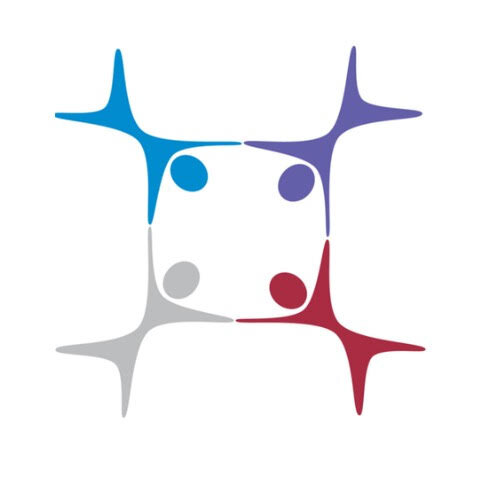Postdoc in Informatics, Cancer Genomics, and Biological Data Science - Boston Children's
Job summary:
The Dietlein Lab (www.dietleinlab.org) is seeking applications for a fully funded Postdoctoral Fellowship position. Our lab is part of the Computational Health Informatics Program (CHIP) at Boston Children’s Hospital (BCH) and Harvard Medical School. We focus on data-driven precision cancer medicine – to decode the genomic principles of tumor development, overcome barriers to discovering actionable lesions in cancer genomes, maximize the potential of sequencing technologies in patient care, and innovate genome-inspired diagnostics and cancer therapies. Highlights of our research include: We developed one of the first algorithms for discovering noncoding drivers in cancer genomes (Science 2022), established a comprehensive resource of coding drivers in 11,873 patients (Nature Genetics 2020), created a platform for designing driver-directed combination therapies (Cell 2015), and led several clinical studies to enhance early-stage diagnoses of prostate cancer metastases in PET/CT imaging (JNM 2022). Examples of our most recent work can be found here:
https://pubmed.ncbi.nlm.nih.gov/35389777/
https://pubmed.ncbi.nlm.nih.gov/32015527/
https://pubmed.ncbi.nlm.nih.gov/26140595/
https://pubmed.ncbi.nlm.nih.gov/35726091/
https://pubmed.ncbi.nlm.nih.gov/35121878/
https://pubmed.ncbi.nlm.nih.gov/33230298/
https://www.dietleinlab.org/publications
About our lab:
We are dedicated to training the next generation of exceptional scientists in our laboratory. Regardless of your future plans, it is at the heart of our mission as an academic laboratory that you thrive to the next level in your career. This includes guidance to establish a strong funding and publication record as well as dedicated mentorship for your personal career development.
With your start in our lab, we tailor a training plan to your specific strengths and needs, develop actionable teaching goals, and identify potential co-mentors and required resources. Our teaching includes biweekly meetings, peer mentorship, and a joint seminar series. Besides a stellar scientific training environment and outstanding access to data and infrastructure resources, we provide our trainees with plenty of opportunities for their personal growth, such as career development classes, attending national and international conferences, and dedicated time for planning next steps in science, academia and beyond.
All projects in our lab have immediate potential for clinical translational in view, but we know that it requires a long way to go from a computational finding to a clinical therapy. We consider mutual respect and open communication the glue that holds our lab together. Our regular social gatherings build team spirit, and town hall meetings identify issues that we can work on together. Our lab community creates an environment where we can thrive to our fullest potential. We know that cancer is a complicated puzzle, and we value that our scientists bring complementary pieces to the table from their different training backgrounds. We thrive on collaboration, collegiality, and data sharing. While scientists maintain ownership of their project, we encourage collaborations between different disciplines, such as integrating computational and experimental strategies. As a team, we solve challenges that are impossible to overcome for a single discipline. Surrounded by Harvard, CHIP, Boston Children’s, Dana-Farber, and the Broad Institute, our lab provides an ideal environment for creativity, interdisciplinary collaborations, and your personal growth to thrive to your fullest potential in your career.
We look forward to learning more about you and your story!
Required Qualifications:
MD, PhD, or equivalent. Preferably in computational biology, biostatistics, genetics, applied mathematics, physics, biology, molecular medicine, or related fields.
Demonstrated skills in methods or software development and analysis of biological data.
Previous work with cancer biology or genomics data (preferred but not required)
Strong programming experience. Preferably in Python, R, Java, C++, or Matlab
Strong publication record and scientific writing skills
Ability to work as part of a larger, integrated team of scientists
Because this training opportunity is funded by an NIH training program, it is open to US citizens, non-citizen nationals, or permanent residents (green card) only. If you do not fall into this category, we encourage you to submit your application to discuss other postdoctoral training opportunities in our lab.
How to apply:
Interested applicants should submit the following documents to Felix Dietlein, MD PhD (felix.dietlein@childrens.harvard.edu):
cover letter, including a personal statement, your prior research experience, and training goals
CV and publication record
contacts of three references OR three letters of recommendation
up to 3 highlighted publications (optional)
We will start evaluating applications in December 2022 on a rolling basis until this position is filled. The start date for this position is April 2023 or earlier.
We are an equal opportunity employer and all qualified applicants will receive consideration for employment without regard to race, color, religion, sex, national origin, disability status, protected veteran status, gender identity, sexual orientation, pregnancy and pregnancy-related conditions or any other characteristic protected by law.
